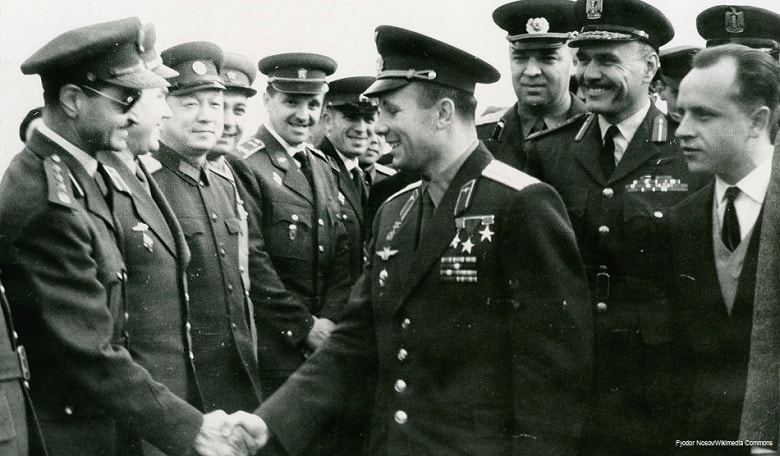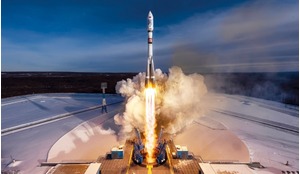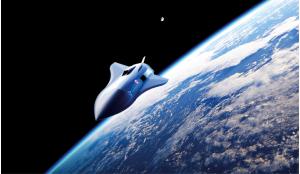Given the current state of relations between Russia and the West, there is a lot of talk of a risk of a new Cold War. This scenario is dangerous but hardly realistic. Russia, for its part, is fully prepared to continue mutually beneficial cooperation with our partners in Europe and North America. Hopefully, the current tensions will be overcome through diplomatic efforts as world capitals become increasingly aware of the stakes involved.
There is, however, one lesson of the Cold War that should be fully taken into account. One of the worst elements of the Cold War was the arms race between the Soviet Union and the United States. This intense competition in quality and quantity of weapons diverted significant funds and efforts that could otherwise be used for development. Today, irrespective of the current Russia-West relations, there is a risk of a fresh arms race between major powers, of which the main arena may be outer space. We believe that this scenario would be utterly damaging for economic development of the whole world community. All the more so that issues of development come on top of every nation’s agenda.
Preventing the deployment of weapons in outer space remains one of the key objectives of Russian diplomacy. The current legal framework in this sphere does not guarantee secure space, leaving room for a possible arms race.
One of the worst elements of the Cold War was the arms race between the Soviet Union and the United States
A safe space will contribute to international security and stability, trust and predictability in relations between states. Space should be used primarily for the purposes of peaceful scientific research in the interest of development and progress of humankind. That is why Russia is eager to promote initiatives that prohibit weaponization of space and help develop international cooperation.
Resolution on first placement
Among those is the resolution on No First Placement of Arms in Outer Space, presented at the UN General Assembly. Co-sponsored by 34 countries, this new resolution was immediately given an overwhelming support at the Assembly’s First Committee (Disarmament and International Security), being approved by 126 votes in favour to 4 against (the United States, Israel, Georgia and Ukraine), and adopted at a plenary meeting of the 69th session of the UN General Assembly on 2 December.
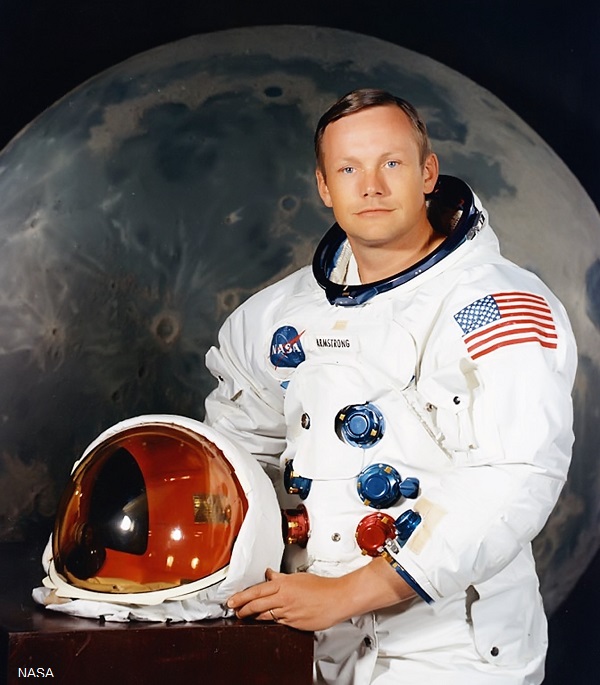 American astronaut Neil Armstrong became the first person to walk on the moon in 1969 as part of the Apollo 11 mission, inspiring generations of astronauts and subsequently giving the United States the lead in the Space Race
American astronaut Neil Armstrong became the first person to walk on the moon in 1969 as part of the Apollo 11 mission, inspiring generations of astronauts and subsequently giving the United States the lead in the Space Race
The voting result has confirmed that the Russian initiative on preventing the weaponization of space is winning growing support in the international community. The composition of the handful of countries that voted against the resolution is revealing.
The resolution provides the basis for further action to keep outer space free from any kind of weapons and to ensure that all countries have an equal opportunity for its peaceful use. One of the key provisions of the new resolution is the idea of early talks at the Conference on Disarmament in Geneva with a view to drafting and adopting a binding international treaty to prevent the placement of arms in outer space and the threat or use of force against outer space objects. Such a treaty was first proposed by Russia and China back in 2008. An updated Russian-Chinese draft was submitted to the Conference on Disarmament in June this year.
The resolution also includes an appeal to all states to adopt a unilateral political commitment on no first placement of arms in outer space. So far, 11 countries have made the respective declarations, namely Argentina, Armenia, Belarus, Brazil, Cuba, Indonesia, Kazakhstan, Kyrgyzstan, Russia, Sri Lanka and Tajikistan.
Further universalization of the Russian initiative will become an important confidence-building measure in international space activity. Adopting a commitment not to be the first to place weapons in outer space by all nations with major space capabilities would greatly advance the cause of a legally binding ban. Further efforts to spread this pledge across the globe would be a major contribution to the efforts of all UN member countries towards equal and indivisible global security and stability.
Transparency and confidence-building
It will also be helpful to continue to support transparency and confidence-building measures in outer space (TCBMs). The corresponding resolution has been proposed by Russia at the current UNGA session, based on the results of the work of the UN Group of Governmental Experts on TCBMs. This resolution as well as the final report of the Group can provide a solid foundation for continuing cooperation in this area and promotion of the TCBMs, which are also important in terms of creating a mechanism on verification under a future treaty.
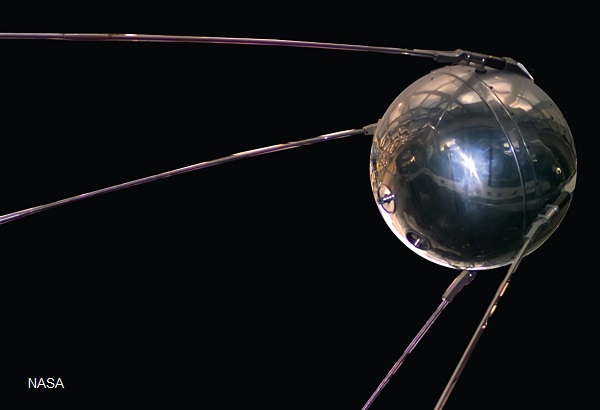 A replica of Sputnik 1. Launched in 1957, it gave the Soviet Union an early advantage in the Space Race
A replica of Sputnik 1. Launched in 1957, it gave the Soviet Union an early advantage in the Space Race
Russia is ready to continue collaboration with the EU on a draft International Code of Conduct for Outer Space Activities. In general, we support initiatives aimed at codification and implementation of TCBMs in international relations, bearing in mind that they should be agreed through inclusive and consensus-based multilateral negotiations to be conducted within the framework of the UN without specific deadlines in order to reach a balanced outcome that addresses the needs and reflects the concerns of all participants. It is also important that initiatives of this kind of should ultimately address issues related to the threat of the weaponization of space and the need for global commitment to prevent an arms race in outer space.
Space belongs to all humankind
Russia firmly believes that space belongs to all humankind and should be used by all states in a peaceful, transparent and open manner. Actions based on the illusion of a monopoly in outer space, including on weapons, will lead humanity to another wasteful arms race and a deadlock in development.
In the current global economic conditions another arms race would be an unnecessary waste of precious resources needed for the further development and solving social and humanitarian problems, especially in view of the international community’s effort to define the post-2015 global development agenda. It will not help the world to fight poverty, hunger, corruption, and other social challenges. It will add nothing to settlement of the multiple regional conflicts, but, instead, would lead to global insecurity and instability.
Ultimately, space belongs to all humankind
A note from the editors: This article is part of Discussion ROOM, a forum for sharing and debating ideas. We will continue to debate the theme of safe space in our next issue.





